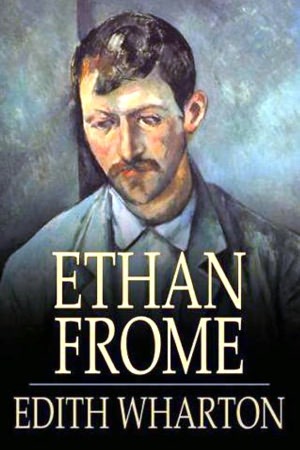When one is under a sick spell, one should stick to simple, short and entertaining stories: when I found myself recently under a heavy bout of tracheitis I turned to Xingu, by E. Wharton to ease my pain. It delivered: a cynical but very, very entertaining little story, perfect for my predicament...
Here I have to admit I was slightly apprehensive: I had started on the wrong foot with Wharton, and I knew this would not be an easy task. I should not have feared: I now know that Wharton is more than one piece of literature.
What is Xingu? well, we get to learn that at the very end of the story and this serves only to highlight the main point: the superficiality of "good society"... Because the story is about a book club, where only the "chosen" ones get to belong to, where only the "wise" get to showcase their books and where those who belong to neither cast get to show their wealth. It rang some bells with me, as I belong to two book clubs - and while there is nothing remotely similar to Xingu, I could recognise some instances I may have encountered myself (I'll leave it to this...)
The ladies of the book club are eagerly waiting the arrival of a famous author, to discuss her latest book. We are given the characteristics (i.e. the vulnerable attributes) of everyone in the group and we get an insight into their habits: we get to know Mrs. Plinth, the distinguished member, in particular. Looking down on everyone, she is the epitome of the "nerd-type" party of a literary group, a person who sees as their ultimate goal to make a name for a well-educated, industrious and valuable member (or a book club or society in general). She declares:
"Amusement is hardly what I look for in my choice of books"
No, of course not. One has to toil, or at least to make others thinks so. Because when in another instance a question is posed, our dear Mrs. Plinth is revealed to utterly dislike
"... being asked her opinion of a book. Books were written to read; if one read them what more could be expected? To be questioned in detail regarding the contents of a volume seemed to her as great an outrage as being searched for smuggled laces at the Custom House"
Now, I have met such people, I have to admit. And I have seen this struggle to pretend to being something more. Something greater. Something higher. And it just won't work. There will always be a black sheep (hello, Mrs. Roby), who will basically form part of this group by accident. But she will never strive to prove her worth against her fellow members. She is content with what she is and does, and will not hesitate to show how well she knows the others by playing a nice little farce. A farce so well executed, she will even fool the distinguished guest. The guest who will recognise Mrs. Roby's genius and will leave the whole group to further engage in a discussion with her. Double the trouble then: the group agree it's time they let Mrs. Roby go. They shan't be made to look like fools by someone who is not deemed suitable to "participate in the mental gymnastics of the club".
And so, order is back: everyone in the group will have their distinct role to play, and there will be no more disruptions by "outsiders". Yes, it's all coming back to me, I knew I recognised this story...
Xingu is available for free on Project Gutenberg. This post will also be published on Project Gutenberg Project.
Xingu is available for free on Project Gutenberg. This post will also be published on Project Gutenberg Project.

